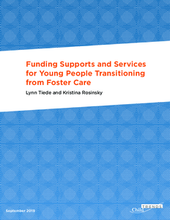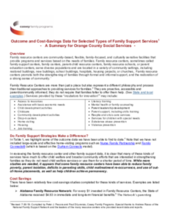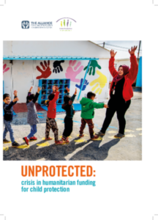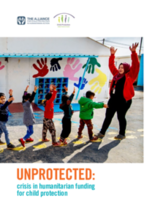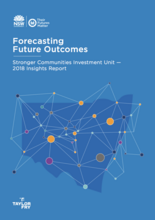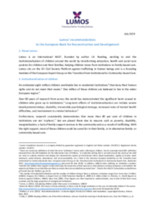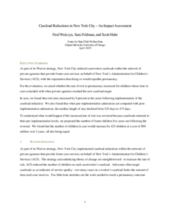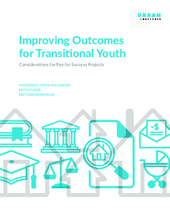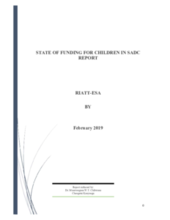Displaying 71 - 80 of 189
This report draws on interviews the authors conducted with 19 child welfare leaders in eight jurisdictions to highlight how jurisdictions are using existing funding sources to serve this population and examine the funding challenges they continue to face.
This document from Casey Family Programs reviews data on Family Resource Centers and other family support services in the US.
This desk review provides a picture of funding for the child protection sector over the period 2010–2018.
This desk review provides a picture of funding for the child protection sector over the period 2010–2018. The authors highlight funding trends, main donors and recipients, and examine funding levels in comparison to financial requirements in a selection of countries in 2018.
This report, which was authored by Taylor Fry with support from Their Futures Matter (TFM) - a landmark reform of the Government of New South Wales (NSW), Australia to deliver improved outcomes for vulnerable children, young people and their families - and stakeholder agencies, presents key results and insights from the TFM Investment Model, an actuarial model of future outcomes and costs of providing key government services to children and young people in NSW.
This statement from Lumos outlines the organization's recommendations to the European Bank for Reconstruction and Development regarding the institutionalization of children.
The content of this Call to Action comes from what was heard from young people with care experience as well as from the professionals working with them. It outlines three primary actions to realize careleavers' rights in the law and in practice and to allocate adequate funds for realizing these rights.
For this evaluation, the authors asked whether the rate of exit to permanency increased for children whose time in foster care in New York City coincided with when private foster care agencies reached the new reduced caseload target.
This brief summarizes insights drawn from Community of Practice conversations and provides recommendations for local governments, service providers, and other partners considering Pay for success (PFS) as a tool for financing interventions serving transitional youth.
The State of Funding for Children in SADC is a report that investigates the status of resources that are earmarked for children in southern Africa.

